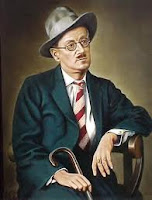Do you find yourself predisposed to like (or dislike) books that are generally accepted as great books and have been incorporated into the literary canon? Discuss the affect you believe a book’s “status” has on your opinion of it.
I think that my feelings on this topic have changed over time. When I was in high school and college I was much more likely to assume that whatever classic literature they were asking us to read must be of great value, because otherwise why would we be asked to read it. So I searched for nuggets even in things I hated, like The Scarlet Letter or The Old Man and the Sea. But as I've gotten older, and I've learned more about the history of teaching reading and literature in our schools, I've come to realize the many, many, many voices that were never heard. Women, people of color, gays and lesbians-all, with the notable exceptions of the Brontes and Jane Austen, were either left out of the literary conversation all together or had their stories told by others (most often not very authentically). So, as the years have gone on, I've been less likely to read something that is strictly from the cannon and choose other, more diverse voices instead. I suppose if I'm not careful I'll swing too far the other way, but for now I'm content to stay away from some of the capital A authors in favor of looking at life through the eyes of a more diverse group of small a authors.
Capital A Authors:
Small a authors:





































I think you make a good point that it's important to look beyond the "capital A authors" and find some amazing authors that are generally left out of the literary cannon.
ReplyDeleteYour post is the first in this blog hop that made me want to change what I wrote. I still think it's worthwhile to read the Western canon, since there is usually something good to be gained from these books. If classics are only defined by the Dead White Man definition, then stepping away from the canon is indeed needed. When I wrote my post, my idea of what was a classic is a bit broader than what you describe, since it can include classic women's literature, classic genre fiction, and classics of gay and lesbian literature.
ReplyDeleteThat's so true! There are some amazing authors that are completely left out of the canon, really unfairly. So that's definitely an important thing to think about, I agree. But there are still some classics by these white guys that are worth reading, I think (although Dickens should just be forgotten, completely, if you ask me!)
ReplyDeleteI like the way you think. I'm going to try to remember your words as I choose my books this year.
ReplyDeleteBravo! I too thought twice about conforming to canon status books. After all, who's to say that some books are acceptable over others? Is that anyone's job? It seems that many authors have gone underappreciated and even ignored due to their social status not being white, male, rich, straight and highly educated. I'm so glad that you pointed this out!
ReplyDeleteI guess my interpretation of literary canon was too broad, since I didn't read the question as limited to established literary classics by dead white guys. I envisioned a more encompassing canon arising from the votes cast by a circle of modern (in-the-know) readers who judge what is to be considered "great" literature. That includes classics but also includes newer and more diverse works. The only unifying feature is that the people who get to judge have identified these works and these writers as worthy of attention. It's still annoying that other people are saying what is great literature, but not as annoying as if only white males get to be authors in the canon.
ReplyDeleteI agree. It's very important to widen your reading circle and read beyond the prescribed authors. In fact, the literary canon, isn't it mainly put together by white male middle class people? So they are bound to add more of their own peers than yours or mine!
ReplyDeleteI think it's nice that in the last 15 years or so since i left grad school that the word canon now seems to imply something more inclusive beyond the dead, WASPs males and a few token Brontes.
ReplyDeleteIt's also hard to imagine that some of the literary greats today won't have staying power, but only time will tell: Michael Ondaatje, Howard Norman, Edwidge Danticat, Jim Harrison, Ann Patchett, Richard Russo--some of my favorite contemporary authors in the the English language.
Great post. It made me think of how my ideas of "good literature" and the literary cannon have changed since high school, college, and even in the past few years.
ReplyDeleteinteresting thoughts. I like a mix of things. I really just search for the books that interest me...and I've really enjoyed many classics on my own and through school, but not all great books are classics (in my opinion).
ReplyDelete-Let's Get Beyond Tolerance